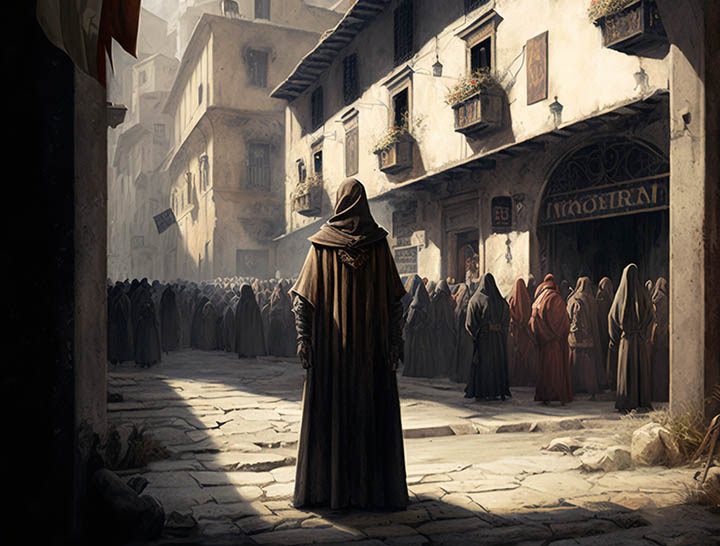Giordano Bruno was an Italian philosopher, theologian, and astronomer who lived in the late 16th century. He was known for his controversial views on religion and science, which ultimately led to his execution by the Catholic Church. However, his bold ideas became the reasons why Giordano Bruno was burned at the stake and executed.
Giordano Bruno’s Beliefs
Bruno’s views were considered heretical by the Catholic Church, which had a significant influence in Europe at the time. He rejected the traditional teachings of the Church, including the concept of the Trinity and the belief in transubstantiation. Bruno also believed in the infinite nature of the universe, which contradicted the Church’s view that the universe was finite and centered around Earth.
Bruno’s Writings and Controversy
Bruno’s ideas were expressed in his numerous writings, which were widely circulated in Europe. He was known for his provocative and controversial arguments, which challenged the dominant views of the time. His writings were often critical of the Church and its teachings, which led to his being accused of heresy.
Bruno’s Arrest and Trial
Bruno’s views were considered dangerous by the Church, and he was eventually arrested and brought to trial in Rome. He was accused of holding heretical views and was subjected to intense interrogation and torture. Despite this, Bruno refused to recant his beliefs and was eventually found guilty of heresy.

Bruno’s Execution
On February 17, 1600, Giordano Bruno was burned at the stake in Rome’s Campo de Fiori square. His execution was a public spectacle, and his death was intended to serve as a warning to others who might question the authority of the Church. Bruno’s execution was a significant event in the history of the conflict between science and religion, and it remains a symbol of the dangers of suppressing free thought and expression.
Conclusion
In conclusion, Giordano Bruno was burned at the stake and executed because of his controversial views on religion and science. His rejection of traditional Church teachings and his belief in the infinite nature of the universe were considered heretical and dangerous by the Catholic Church. Bruno’s execution was intended to send a message to others who might question the authority of the Church, and it remains a tragic example of the dangers of suppressing free thought and expression.


